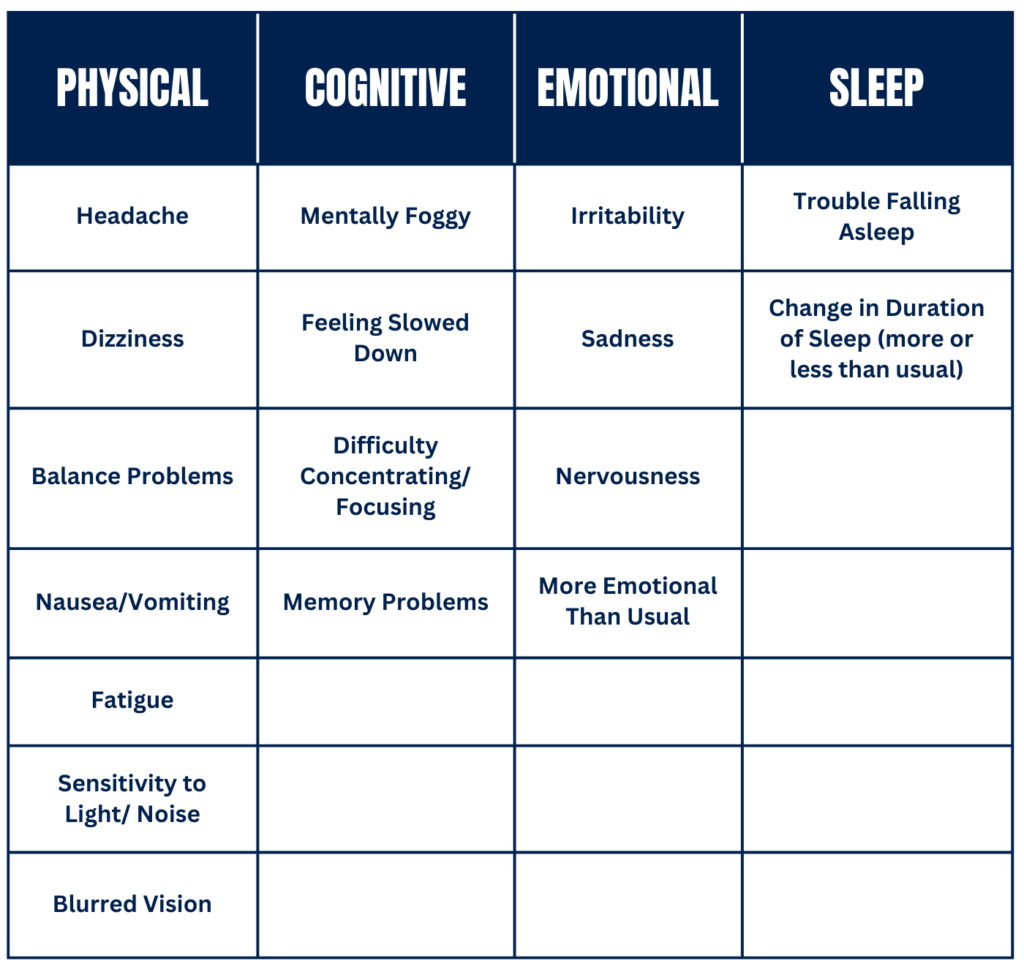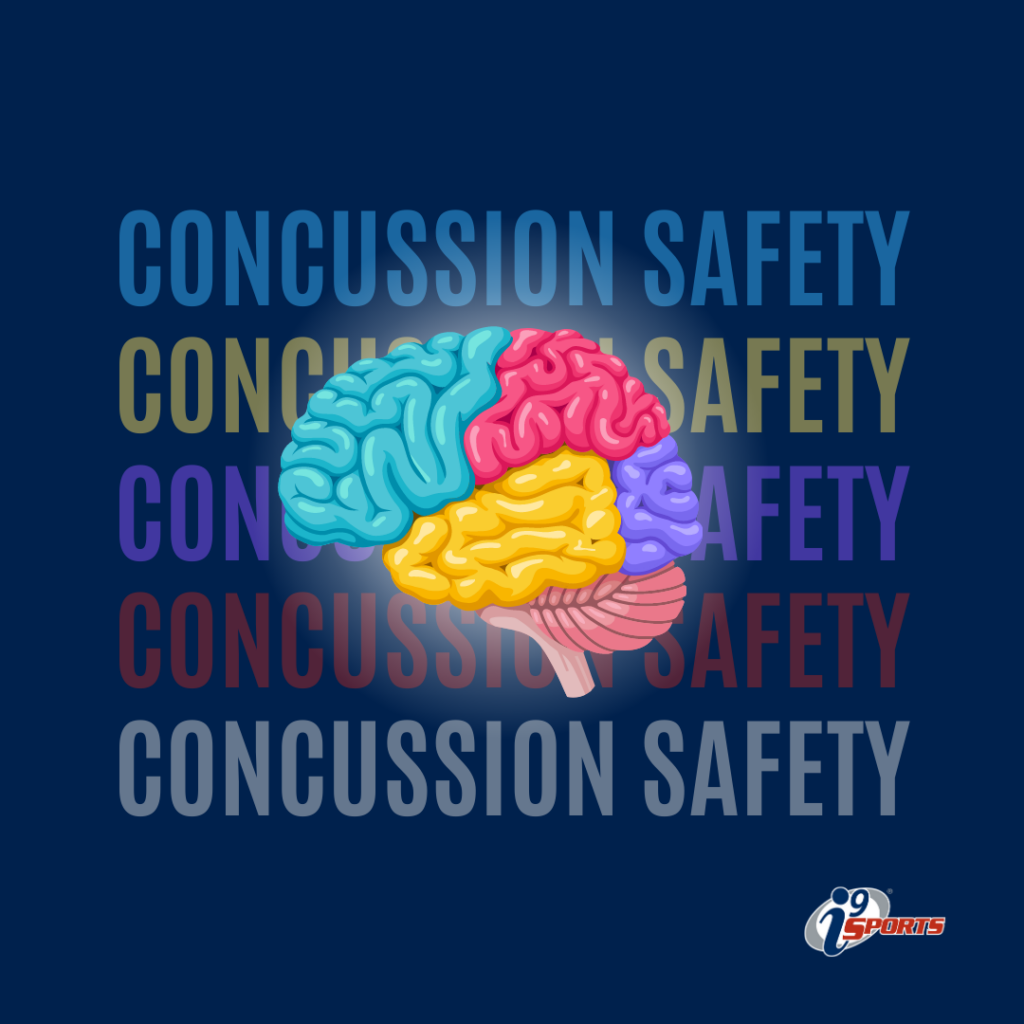How to Recognize a Concussion
Concussions are what some would call an “invisible injury.” It’s not like a broken leg, where someone is visibly unable to walk correctly and may have a visible brace or cast on. People with concussions walk around seemingly normal, which is why it’s so easy to miss.
Athletes of all ages in all sports, even non-contact sports, can be at risk for concussions. It’s important that coaches know the signs of a concussion.
What Are the Signs of a Concussion?
Concussion symptoms can be thought of in four different categories- physical, cognitive, emotional, and sleep. People suffering from a concussion can have any combination of the symptoms in this chart:
 It’s important for coaches to remember these signs and be able to recognize when a player is experiencing them. It’s easy to list symptoms like dizziness, balance issues, and forgetfulness, but not all players will be forthcoming of their symptoms as they may not want to be taken out of a game. That’s why it’s important for a coach to recognize the signs in the moment, especially after a fall or collision.
It’s important for coaches to remember these signs and be able to recognize when a player is experiencing them. It’s easy to list symptoms like dizziness, balance issues, and forgetfulness, but not all players will be forthcoming of their symptoms as they may not want to be taken out of a game. That’s why it’s important for a coach to recognize the signs in the moment, especially after a fall or collision.
A Concussed Athlete May Appear:
- Dazed or stunned.
- Slow to answer questions.
- Easily confused by questions or assignments.
- Unable to recall events before or after the injury.
- More clumsy than usual.
- Slow to get up after a collision and possibly stumbling.
Recognizing a concussion when it happens can make a difference in how quickly an athlete can recover and get back to normal activity levels. These signs and symptoms can show up immediately or up to 48 hours after a concussion. If your child or athlete is suffering from any signs of a concussion, or has recently experienced a head injury, it’s best to have a doctor examine them as soon as possible for proper treatment.
“When in Doubt, Sit Them Out”
At i9 Sports®, we put safety first. We have a “when in doubt, sit it out” concussion policy. This means any player showing any signs of concussions will be sat out immediately. This policy is in place to help ensure none of our athletes continue to play with a concussion and risk reinjury which can cause permanent damage.
More Educational Resources for Coaches and Parents
We work with our partners at Teach Aids to offer learning tools for our volunteer coaches. Teach Aids provides first person videos of athletes and non-athletes who have suffered concussions. They also offer educational videos from medical professionals that explain the many different aspects of concussions and brain injuries. These resources are free to watch and can help prevent your kids from continuing to play with a concussion. Check out one of their post popular Crash Course videos below!
